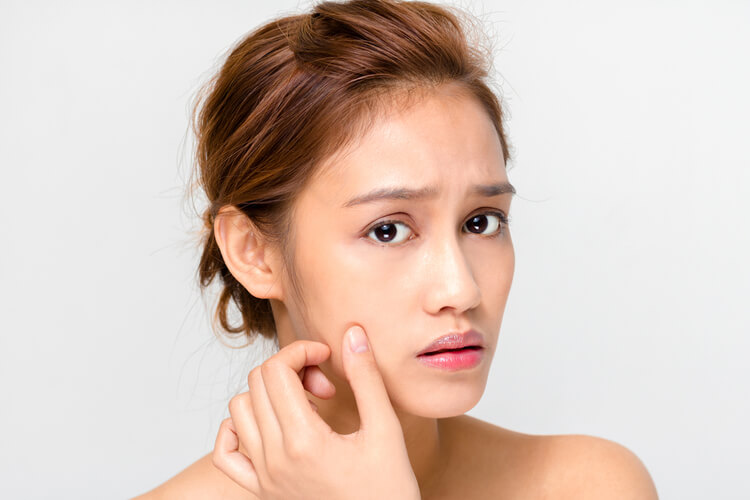What Causes Breakouts Besides Acne?

Acne is the most common skin disorder in the United States and affects 40 to 50 million Americans.
An estimated 85% of people will have acne at some point in their lives. So what’s the cause of this highly prevalent problem? There are 3 main factors: comedones + infection + inflammation.
Factors
Let me explain. Our face, chest, and back are covered in small hair follicles with attached oil-producing glands. Excess oil and dirt can build up and clog these hair follicle openings (or pores), forming little plugs called “comedones” which are commonly referred to as blackheads and whiteheads. These comedones trap bacteria in the base of the hair follicles, leading to an infection. This triggers immune cells to gather around the hair follicle to try to fight the infection and in the process creates inflammation, forming pus-filled pimples and deep painful cysts. Squeezing a pimple can rupture the follicle, which leads to even more inflammation. Some young women have acne that’s further driven by a 4th factor: hormones. Clues to this include acne that flares badly with periods and acne predominantly located along the chin and jawline.
Prevention
So what can you do to keep acne at bay? Some simple steps include washing your face at least twice a day, using only “oil-free” or “non-comedogenic” cosmetic products, and especially resisting the urge to pick at your skin, which can not only worsen inflammation but can lead to scarring. Using over-the-counter products containing salicylic acid and benzoyl peroxide can be helpful in clearing up mild acne. However, for acne that becomes moderate to severe, it might be time to seek the expert help of a dermatologist. He or she can examine your skin and prescribe medications specifically tailored to your needs that target all the causes of acne. Comedones can be reduced and prevented by topical retinoids such as tretinoin, adapalene, or tazarotene. Infection can be prevented with topical antibiotics such as clindamycin, erythromycin, dapsone, and benzoyl peroxide. Deep inflammatory acne may require taking pills like doxycycline, and large inflamed cysts can be rapidly improved (before they cause a scar) with injections of steroid medication. For women with hormonally-driven acne, we can often help with medicines like birth control pills and/or spironolactone.
How We Can Help
What about people who have severe or treatment-resistant acne? It might be time to consider isotretinoin, also known as Accutane. This medicine is definitely a commitment: it has to be taken for several months and requires careful monitoring. However, when it’s used properly and safely, it can be extremely effective at treating even the most severe acne. For more information and personalized help, please call our office.
Jennifer Dharamsi, M.D.
Dr. Dharamsi is a board-certified dermatologist who received her medical degree from Johns Hopkins University and served as Chief Resident of dermatology at UT Southwestern before joining Precision Dermatology and Dermatology Consultants of Frisco. The practice specializes in the treatment of acne, skin cancers, and all other skincare needs and can be reached at 904.312.6767 (Denton) or 972.335.2727 (Frisco).

